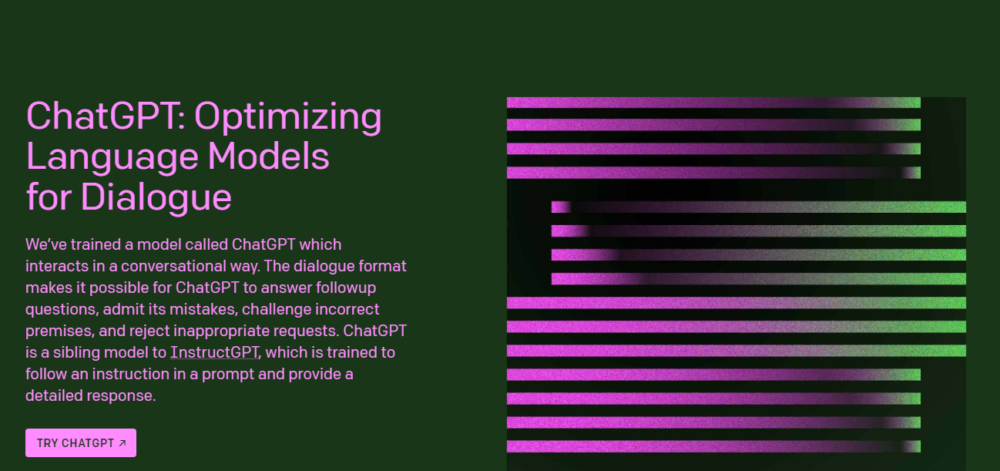ChatGPT may derail Google’s market domination on online search engine

ChatGPT is a generative AI, with the potential to carry out natural language generative tasks with a high level of accuracy
Over the past few months, interactive chatbots, based on Artificial Intelligence, have redefined online searches for information. Leading the revolutionary change is ChatGPT, which was the first such chatbot launched in November 2022 which has set social media ablaze with its popularity and innovative approach to answers in response to questions posed to it.
Its rapid adoption around the world has led BigTech firms like Microsoft and Google to hurriedly launch their own AI-based interactive chatbots.
Understanding ChatGPT
ChatGPT (Chat Generative Pre-trained Transformer) is a generative AI, with the potential to carry out natural language generative tasks with a high level of accuracy. It is built on GPT-3, (Generative Pre-Trained Transformer 3), a Language Module (LM), which utilises deep learning to generate human-like responses. The Language Module enables ChatGPT to predict the next word logically. It is this feature which allows ChatGPT to write paragraphs and entire pages of content.
However, the credit for the human touch of ChatGPT goes to its training by engineers. The AI tool has been fed with various codes, including information from social media to provide a human-like response.
Although ChatGPT can provide limited answers to questions related to events after 2021, its engineers have loaded it with RLHF (Reinforcement Learning From Human Feedback) which enables it to learn from the environment and provide situation-based answers, keeping it updated about even those events that have taken place after 2021.
Since its launch in November last year, ChatGPT till January has been downloaded by 100 million users. OpenAI has projected the revenue of ChatGPT to cross USD 200 million by 2023 and USD 1 billion by 2024.
However, ChatGPT is still learning and is not immune to making mistakes. Its developer OpenAI too admits that Chatbot sometimes could give “plausible-sounding” but incorrect or non-sensical information.
ChatGPT has been developed by a San Francisco-based firm, OpenAI, which was founded by Silicon Valley entrepreneur Sam Altman in 2015. In January 2023, Microsoft announced a USD 10 billion investment in OpenAI which would give it 75 pc share of profits and a 49 pc stake.
One of the primary reasons behind Microsoft’s aggressive investment in OpenAI is that ChatGPT could help Microsoft’s search engine Bing taken on Google much more effectively than has been the case so far.
Through a conversational way of searching for information online, ChatGPT carving out a new path has disrupted the way information is searched online. Many experts have predicted that ChatGPT will pose a serious threat to the near-total control of Google over the search engine market worldwide. Sensing a serious threat, Google launched its own AI chat service – Google Bard, on February 6.
Though similar in functioning, there are some significant differences between Google’s Bard and ChatGPT. Bard is powered by Language Model for Dialogue Application, (LaMDA) which in turn is dependent on Transformers, a pre-trained natural language processing model.
Although both, ChatGPT and LaMDA are based on the same GPT 3.5 architecture, the difference lies in their approaches to the training – as the responses generated by LaMDA are more human in nature compared to ChatGPT. Unlike, ChatGPT, Google Bard uses external sources to display results.
However, it is far from flawless and Google Bard’s answer to the question about James Hubble’s telescope has been a point of discussion. Bard reportedly wrongly answered the question ‘‘What new discoveries from the James Webb Space Telescope can I tell my 9-year-old about?” Moreover, there has been a controversy over LaMDA being sentient. The allegation mainly stemmed from the answers Bard gave to the engineer Blake Lemoine during the course of its training. Lemoine, who worked for Google’s Responsible AI organisation team, talked to LaMDA as part of his job. Lemoine was was fired by Google last year for his allegations. Google has denied the allegations.
“Our team, including ethicists and technologists, has reviewed Blake’s concerns per our AI Principles and have informed him that the evidence does not support his claims. He was told that there was no evidence that LaMDA was sentient (and lots of evidence against it),” it said in a statement.
Google Bard is yet to be released to the public, but experts say it has been trained on a dataset based on internet content, infiniset. About 12.5 pc of its data came from a public dataset and another 12.5 pc from Wikipedia, according to 2022 LaMDA research.
ChatGPT answers by taking a guess at the meaning of a sentence. This leaves the scope of an answer to unintended questions. According to the question and answer site, Stack Overflow Moderators, who have refused to use ChatGPT for their site say that, although the chances of the ChatGPT giving a wrong answer are high, the answers look good and are easy to produce. This drawback has also been acknowledged by OpenAI.
Google Bard on the other hand, besides, relying on its inbuilt dataset, also depends upon external sources for information. Since there are a lot of unverified sources, relying on external sources can lead to wrong results.









